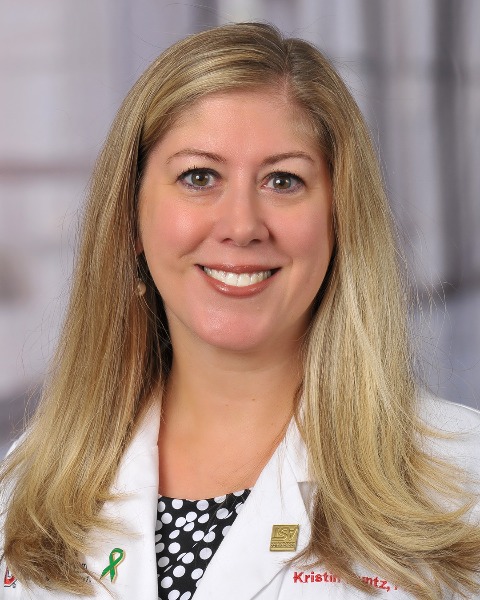Virtual Symposia
Transplant Psychiatry
Not Just Alcohol and Livers: What About the Other Substance-related Challenges in End-stage Disease and Transplant?
.jpg)
Gerald Scott Winder, MD MSc FACLP
Associate Clinical Professor
University of Michigan
Ann Arbor, Michigan.jpg)
Sarah R. Andrews, MD (she/her/hers)
Assistant Professor
Johns Hopkins University School of Medicine
Baltimore, Maryland
Kristin Kuntz, PhD (she/her/hers)
Associate Clinical Professor of Psychiatry & Behavioral Health
The Ohio State University Wexner Medical Center
Columbus, Ohio- AG
Arpita Goswami Banerjee, MD
Assistant Professor of Clinical Psychiatry Consultant Psychiatrist Penn Transplant Institute Unive
University of Pennsylvania
wilmington, Delaware - LO
Lesley Omary, MD
Associate Professor of Clinical Psychiatry
Vanderbilt University Medical Center
Nashville, Tennessee
Lead Speaker(s)
Speaker(s)
Alcohol-related liver disease (ALD) is a leading indication for liver transplantation (LT) worldwide and its impact on morbidity and mortality cannot be overstated. Accordingly, alcohol use disorder (AUD) often dominates discussions about substance use disorders (SUD) and other compulsive behaviors in end-stage disease and solid organ transplantation (SOT) to the exclusion of other matters that consultation-liaison (C-L) psychiatrists and transplant psychologists commonly encounter. Furthermore, many SUD-related challenges are longitudinal, create disparities in transplant access, and occur across decades of patients’ lifespans. All are best addressed when psychiatric and SUD care is integrated into medical and surgical treatment. In this 90-minute workshop, 5 C-L clinicians all from different healthcare systems address pertinent non-alcohol SUD, substance-related challenges, and compulsive behaviors occurring across the lifespan in end-stage disease and SOT patients. Dr. Arpita Goswami will address (12 minutes) opioid use disorder in cardiac patients as endocarditis from intravenous drug use is a major interprofessional challenge for cardiac teams(1). Repeated relapses across patients’ lifespan can raise difficult questions about how many valve replacements patients should be offered. To maximize audience engagement and learning, this workshop will utilize Q&A and panel discussion (18 minutes) and incorporate typical case presentations, aspects of end-stage disease and SOT that generalist C-L psychiatrists will likely encounter, and practical guidance using current literature. 1. Roselli EE, et al. The Annals of thoracic surgery. 2021;111(2):401-6. 2. Konerman MA, et al. BMJ open gastroenterology. 2019;6(1):e000271. 3. Grønbæk L, et al. United European Gastroenterology Journal. 2017;6(3):407-12. 4. Ehlers SL, et al. Liver Transplantation. 2004;10(3):412-7. 5. Vaitla PK, et al. Journal of Evidenced-Based Medicine. 2021 May;14(2):90-6. 6. Bulik CM, et al. Journal of clinical psychiatry. 2004;65(7):0-. 7. Mellinger JL, et al. Liver International. 2021;41(5):1012-9.
Dr. Sarah Andrews will present (18 minutes) the hazards of prescription drug use in liver disease patients (i.e. benzodiazepines and opioids which are commonly prescribed individually, together, and in high doses)(2) and the risk this entails for elderly patients and those with hepatic encephalopathy(3). She will also discuss nicotine use in this population since 60% of LT recipients have a lifetime history of tobacco use and 20% relapse post- LT(4).
Dr. Kristin Kuntz will talk (18 minutes) on cannabis use in renal patients which is controversial, common, and has mixed effects on SOT outcomes(5). She will also discuss the challenges inherent in pediatric patients transitioning into the adult SOT care environment and how teams approach re-transplanting SUD patients whose first transplant occurred during childhood.
Dr. Scott Winder will speak (12 minutes) on compulsive eating behaviors (i.e. anorexia and bulimia nervosa) which are SUD risk factors and comorbidities(6) and confer unique psychiatric and metabolic risks in GI/liver patients (i.e. later life ALD risks in bariatric surgery patients)(7).
Finally, Dr. Lesley Omary will explore (12 minutes) the intersection of anxiety, hypoxia, and chronic benzodiazepine use in pulmonary patients, including the added risks to elderly patients.Learning Objectives:

